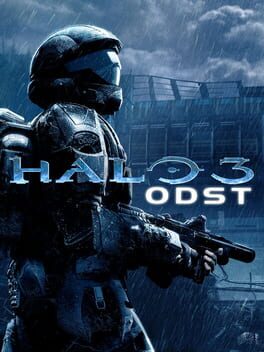ODST experiments with a moody hubworld to varying degrees of success, and goes for a smooth jazz, almost noire cyberpunk style of vibe. The vehicle sections don't land quite as hard as most Halo titles, but the thrilling and short segments of vulnerable ground combat make up for it.
Ironically, despite the shift to more deliberate firefights with smaller quantities of enemies and the player character's physical traits being weakened, ODST is probably the easiest of the franchise, even on Legendary difficulty - Which is to say the encounters are thoughtfully designed around the player's stats to create a tense, but not frustrating campaign that can be briskly ran through in a few sessions. ODST cuts down on the Halo sandbox in an effort to focus on the core of what makes Halo tick, and refreshingly focuses more on small scale, close and intimate combat encounters over the mid-to-long-range "Connect the Dots"-fest later games would trend toward starting with Reach.
The story is technically there, the voice cast is solid, and the story-telling methods are novel, but the real heart and soul of ODST that makes for a convincing world is the best in class soundtrack - Arguably Halo's best.
With Firefight finally being included in the Master Chief Collection, and it getting matchmaking support 11 years later than it should have, ODST is a complete Halo package. It's hard for me to pick many nits with this game, other than pining for a sequel to flesh out the ideas presented here.
Ironically, despite the shift to more deliberate firefights with smaller quantities of enemies and the player character's physical traits being weakened, ODST is probably the easiest of the franchise, even on Legendary difficulty - Which is to say the encounters are thoughtfully designed around the player's stats to create a tense, but not frustrating campaign that can be briskly ran through in a few sessions. ODST cuts down on the Halo sandbox in an effort to focus on the core of what makes Halo tick, and refreshingly focuses more on small scale, close and intimate combat encounters over the mid-to-long-range "Connect the Dots"-fest later games would trend toward starting with Reach.
The story is technically there, the voice cast is solid, and the story-telling methods are novel, but the real heart and soul of ODST that makes for a convincing world is the best in class soundtrack - Arguably Halo's best.
With Firefight finally being included in the Master Chief Collection, and it getting matchmaking support 11 years later than it should have, ODST is a complete Halo package. It's hard for me to pick many nits with this game, other than pining for a sequel to flesh out the ideas presented here.
